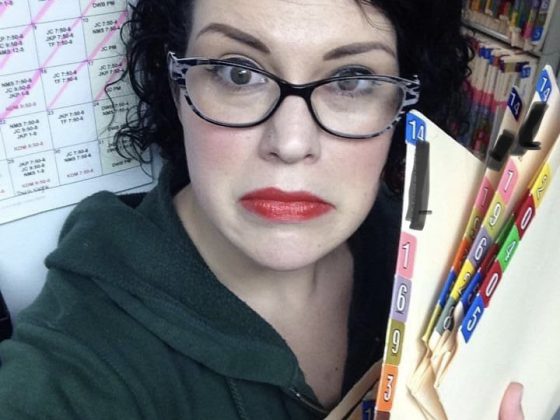If you’re interested in dabbling in playwriting but aren’t sure how to get started, a short play might be a great way in. In the past, short plays were written off (pun intended) as a “weaker” or “easier” genre, but the short play has become increasingly recognized and respected as a legitimate dramaturgical form. Let’s take a look at a few things you’ll want to consider as you begin to tackle your short play.
How Long Should It Be?
This is one of those questions that has lots of different answers. A short play can really be anything from one minute to about twenty minutes long, although many tend to fall in the ten-minute range. If your play is running more than thirty minutes, it probably falls into the one-act category. There’s no hard and fast rule about how long a short play should be, but if you plan to submit your work to play festivals or contests, there will most likely be time restrictions or a page length minimum/maximum requirement. A good way to gauge the running time of your play is to assume that every page will take about one minute of stage time.
Let’s Talk Structure
So, you’re ready to dive in and start writing. Great! Now what? It’ll be helpful to understand basic play structure first. Most plays (at least those that follow traditional play structure) begin with a sense of balance. Everything in the characters’ world is normal (whatever that normal is for the characters). But then something happens to disrupt the balance. We call that the inciting incident, and it’s the inciting incident that makes the dramatic stuff in the play happen. And when that stuff really hits the fan, we call that the climax. After the climax comes the denouement. The denouement is the resolution, where the story is wrapped up and a new sense of balance is established in the characters’ worlds.
So, what’s all that mean for your short play? In a nutshell, short play structure follows the same pattern as a full-length play, it’s just much more condensed. In a full-length play, you have plenty of time to weave in information about the characters and their backstories. This isn’t true for a short play. You have a limited amount of time to convey information about your characters and the story, so you have to cherry-pick the most important information the audience needs to know and then find creative ways to incorporate it into your script as early as you can. It also means you need to arrive at your inciting incident and reach the climax much sooner. In a full-length play, your inciting incident might happen around page nine or ten. But in a short play, that’s at least halfway through the play! So, you have to start your play much deeper into the story so you can get to the dramatic “meat” quickly.
It’s All About Character
As you might have guessed, characters in a short play tend to be more one-dimensional than those in a full-length. There just isn’t enough time to really flesh them out, so don’t worry about crafting a Hamlet or a Blanche DuBois. But there are still plenty of ways to make your characters interesting. I like to pick a couple of defining attributes or characteristics that I know I can get a lot of mileage out of. This is especially helpful if you’re writing a comedy. Comedy is all about exaggeration and surprise, so how can you exaggerate your character’s quirky trait? Or perhaps your character behaves in surprising ways. For example, take full-length character Oscar Madison from Neil Simon’s The Odd Couple. One of Oscar’s notorious traits is that he’s a bit of a slob. If you were writing an Oscar-like character in a short play, you might play around with Oscar’s messiness and see what kind of dramatic tension you can create out of it.
Dramatic characters should be driven by an urgent, pressing need, and this is especially true in a short play. Whatever your character needs, they should need it now. If you get stuck trying to figure out what they need, try thinking about what it is your character fears the most. That often helps lead to what they want.
Keep It Simple, Silly
Remember: short plays are all about substance and not flash. With a short play, you simply don’t have time to employ a lot of fancy effects, and because short plays tend to be performed in smaller spaces, you probably won’t have access to the technical setup to achieve them anyway. So, don’t worry about reproducing Angels in America-like stage magic, just tell a good story.
Along those same lines, you’ll want to keep the number of characters you use to a minimum. For most short plays, two to five characters is usually ideal. You simply won’t have time to do anything with more than that. And be especially aware of avoiding a utility character (a character that comes on only for one or two lines, like a waiter in a restaurant scene). Even in a full-length play they can be dicey, and in a short play they’re probably using up valuable page space.
Where Do I Start?
A play can come from anywhere-an image, a poem, a story in the news, a dream, or something that happened to you. Your play might also start not with a story idea but with a character you’d like to explore. Or you might just have an idea spontaneously pop into your head. There’s no wrong place to get inspiration.
The best advice I can offer is: write what excites you. Write the kind of play you’d like to read or watch. Start a journal of things that you feel passionately about. What makes you joyous? What makes you angry? What do you find absurd? These can all spur ideas for a short play.
The short play format can be a lot of fun, and offers playwrights a sandbox for creative exploration. I’ve always found the constrictions to be valuable training ground in how to be a concise and economical story-teller. If you have an idea floating around in your head, why not start with a short play? You might be surprised where it leads you!















3 comments
Hi, Kevan —
A face from the past, writing to say that I loved the article (great advice for all writers, especially appropriate for our current culture and era), love following your work and especially love that you’re still writing, still creating, still keeping theatre alive. Congratulations – and I hope our paths cross again some day.
I’ve written a couple of one-acts that would work with middle and high school and college. Is there a way to submit them to StageAgent for possible production?
Thanks for reaching out. We have emailed you with further information.